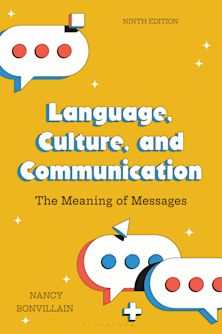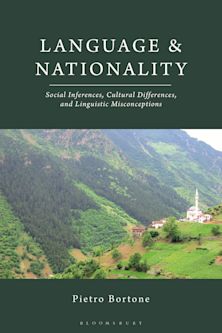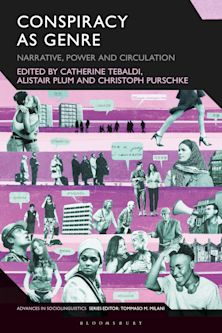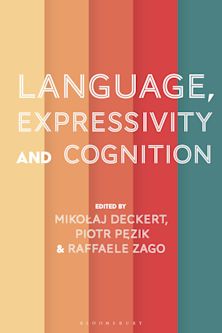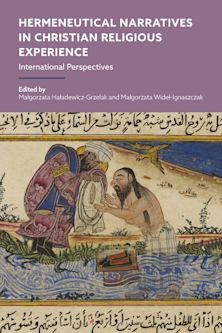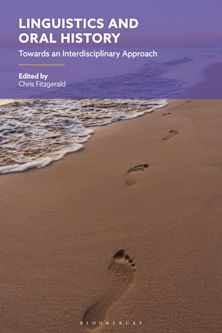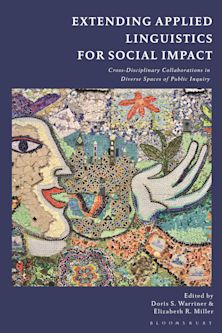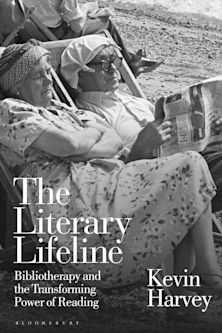- Home
- ACADEMIC
- Linguistics
- Sociolinguistics and Linguistic Anthropology
- Ultralingualism
You must sign in to add this item to your wishlist. Please sign in or create an account
Description
This book offers an introduction to the commonly observed, but generally ignored or misrepresented, practice of using language when referential (semantic) meaning is problematic, partial or even absent.
The concept and term 'ultralingualism' accounts for language performance or use where meaning in the conventional sense lies elsewhere to, or beyond (ultra-), the performer and/or the listener/audience. This book argues for the adoption of the term 'ultralingualism' as an important and previously absent heuristic as a means of capturing the diverse language practices where this language phenomenon occurs.
The book adopts a dynamic and inter-disciplinary theoretical framework that encompasses a range of complementary approaches: linguistic sound or the 'sonic' element of language (real and invented), non-semantic/non-referential language usage, post-vernacular performance, Bauman's heightened performance theory, the ethics of translation, theories linking language and music, and language maintenance and shift theory.
The author presents a range of contexts where ultralingualism can be found including in religious, musical, multilingual literacy, academic, artistic/creative (including popular music) and language revival settings. He shares multifaceted data that illustrate how and why ultralingualism manifests itself in diverse contexts, including interview data; field notes from a number of observations of both live and online ultralingual performances; questionnaire data surveying and documentary exemplifying educational ultralingualism; a review of related literature; personal communications; and analyses of digital texts featuring ultralingualism (including YouTube performances and their BTL comments), and argues that despite the absence of referential meaning, meaning-making still occurs.
Table of Contents
Preface
Acknowledgements
1. Introduction to Ultralingualism: The Disassociation of Language from Meaning
Part I: Ultralingualism and the Verbal Arts
2. Sacred Language Practices and Ultralingualism
3. Language, Music and Ultralingualism
4. Ultralingualism in Popular Music
Part II: Ultralingualism, Literacy and Education
5. Ultralingual Literacy Mediation
6. Ultralingualism and Education
Part III: Ultralingualism and the Creative Arts
7. Ultralingualism and Invented Languages (Conlangs, Artlangs and Fictional Languages)
8. Ultralingualism and Literature
9. Ultralingualism and Pseudolanguages (including Glossolalia)
Part IV
10. Ultralingualism and the Written Word
Afterword
Appendix
References
Index
Product details

| Published | 05 Feb 2026 |
|---|---|
| Format | Ebook (PDF) |
| Edition | 1st |
| Extent | 272 |
| ISBN | 9781350444591 |
| Imprint | Bloomsbury Academic |
| Illustrations | 17 bw illus |
| Publisher | Bloomsbury Publishing |
About the contributors
Reviews
-
This book invites us to consider the relationship between language and meaning in a new light. In taking us through a variety of scenarios where meaning might be situated with either the producer of language, the receiver of language, or neither of them, Rosowsky shines a light on communicative practices that are of both historical and, in today's ever-increasingly globalised world, current and future importance.
Sabine Little, University of Sheffield, UK
-
This timely book insists that disassociation from semantics need not mean communicative failure. By proposing 'ultralingualism' as an integrating term, Rosowsky captures diverse practices and recenters analysis on the locus of reference. A precise, generous framework for understanding ritual, sound, and learning.
Adrian Lundberg, Malmö University, Sweden
-
This book will change how we understand the nature of sacred languages. Rosowsky's argument develops an incredible momentum as he articulates key aspectual linkages between such seemingly disparate phenomena as Qur'anic recitation, the Latin Mass, Eurovision competition, opera, graffiti, and Star Wars. Students of religion can learn much here.
Brian P. Bennett, Professor and Chair Niagara University, USA














